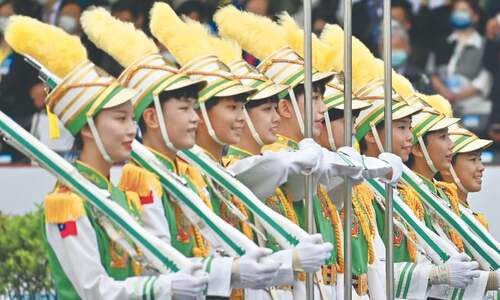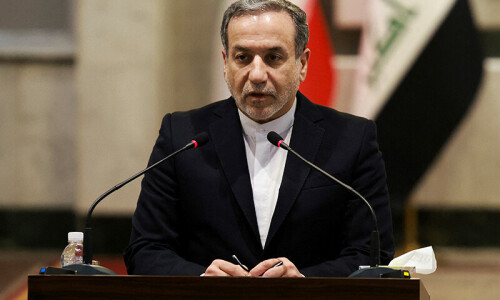TAIPEI: Taiwan’s President Tsai Ing-wen has stepped down as head of her ruling party after it suffered defeat in Saturday’s local elections, while the Beijing-friendly main opposition held its ground.
Voters cast ballots for mayors, magistrates and various other posts in 22 cities and counties in elections Tsai had previously described as a stage to showcase “Taiwan’s persistence and resolve to defend freedom and democracy” as Beijing ramps up pressure on the island.
But her Democratic Progressive Party (DPP) lost four out of the island’s six key mayoralties, including capital Taipei.
“The election results were not as expected.... I should shoulder all the responsibility and I resign as DPP chairwoman immediately,” Tsai, who will stay on as president of the self-ruled island, told reporters.
Taiwan leader quits as ruling party chief after local elections loss
“But we don’t have time to feel sad, we should get up after we fall down...there is no room for hesitation for Taiwan in the face of the current international situation and future challenges,” she said.
The DPP only secured five cities and counties in total, compared with the opposition Kuomintang (KMT) party’s 13.
A referendum on whether to lower the voting age from 20 to 18 was also rejected.
China not major midterm issue
China, which views self-ruled Taiwan as part of its territory to be seized one day, has become more bellicose towards the island under President Xi Jinping.
Tensions rose to their highest level in years in August when Beijing staged huge military drills around Taiwan to protest against a visit to Taipei by US House Speaker Nancy Pelosi.
The KMT, which promoted closer ties with China when in power, pledged to “work hard to maintain peace in the region” as its chairman declared victory at a press conference.
“We will dedicate ourselves to the Taiwanese people selflessly, we will be selfless so the KMT can have a chance to win the (presidential) elections in 2024,” said Eric Chu.
Sung Wen-ti, a Taiwan expert at the Australian National University, said Saturday’s polls were more about local issues and would have limited direct implications on the 2024 general elections.
“China policy is not really on the ballot in 2022, but will be in 2024. Which means the midterms and presidential elections are different beasts,” he said.
Tsai resigned as DPP chief in 2018 when her party lost the last local elections but went on to win a landslide reelection in the 2020 presidential vote.
Published in Dawn, November 27th, 2022













































